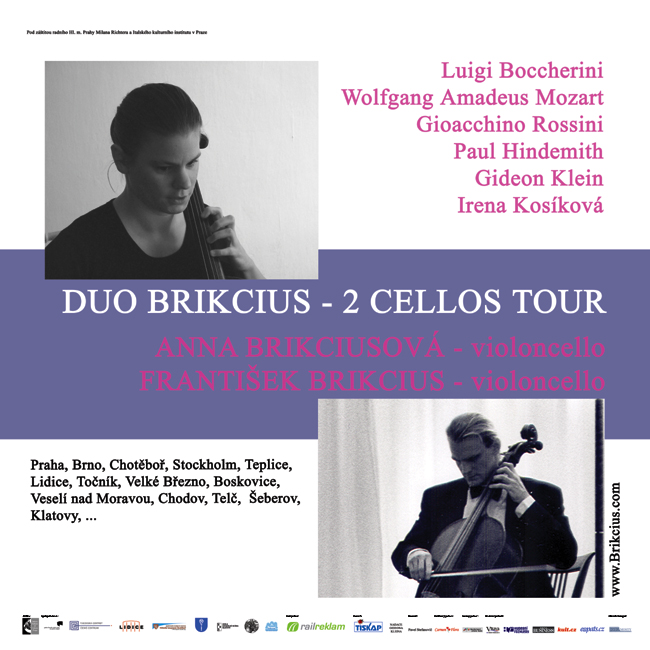|
Under the auspices of the
Councillor of the City of Prague Milan Richter and Italian Culture
Institute in Prague
Duo Brikcius - 2 Cellos Tour
|
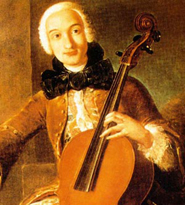 |
Luigi Boccherini
Italian cellist and composer Luigi Rodolfo Boccherini (19 February 1743, Lucca - 28 May 1805, Madrid). |
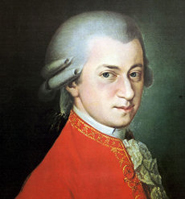 |
Wolfgang Amadeus Mozart
Composer Wolfgang Amadeus Mozart (27 January 1756, Salzburg - 5 December 1791, Vienna), babtised as Joannes Chrysostomus Wolfgangus Theophilus Mozart. |
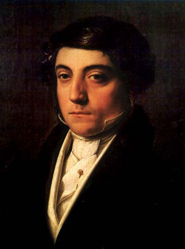 |
Gioacchino Rossini
Italian composer Gioachino Antonio Rossini was born on 29th February 1792, in Pesaro in Italy, into a family of a horn player Giuseppe and a singer Anna. Rossini began his musical training early and by the age of six he was playing the triangle in his father's musical group. Rossini's father was sympathetic to the French Revolution that resulted in his brief imprisonment in 1800. His mother was seconda donna in a theatre at Ancona during the carnival season of 1798, following year she had become a prima donna and performed until 1808 in Bologna, Iesi, Lugo, Fano, Imola, Reggio nell'Emilia and Rovigo. The young Rossini soon began joining his parents on these tours, in 1801 he was listed as playing the viola in the orchestra. His father taught him to play the horn, he was instructed in singing, playing the harpsichord and he began to study composition. In 1804 the family was already residing in Bologna and in 1806 Rossini entered the Liceo Musicale (Conservatorio di Bologna) to study courses in singing, the cello and the piano. The following year he was admitted to the counterpoint class of Padre Stanislao Mattei (1750 - 1825). 1908 Rossini received the Liceo Musicale prize for his composition. Two years later his first opera was produced in Venice. Further new operas in Bologna, Rome, Venice and Milan. In 1815 he retired to his home in Bologna, where Domenico Barbaia, the impresario of the Naples theatre, contracted an agreement that made him musical director of the Teatro di San Carlo and the Teatro del Fondo at Naples. He would compose one opera a year for each theatre. His payment was to be 200 ducats per month; he was also to receive a share from the gambling tables in the theatre, amounting to about 1000 ducats per annum. This was an extraordinarily lucrative arrangement for any professional musician at that time. Rossini's most famous opera was produced on 20 February 1816, at the Teatro Argentina in Rome. Rossini met Ludwig van Beethoven and married the renowned Spanish opera singer Isabella Colbran (1785 - 1845) in 1822. In the same year he moved from Italy to Vienna where his operas were the rage of the audiences and where he was later invited by Prince Metternich (1773 - 1859). Here he made friends with French writer and diplomat François-René, vicomte de Chateaubriand (1768 - 1848) and HSH Princess Dorothea von Lieven (1785 - 1857), wife of Prince Khristofor Andreyevich Lieven, Russian ambassador to London. In 1823, at the suggestion of the manager of the King's Theatre in London, he came to England where he was introduced to King George IV (1762 - 1830) and granted the receipt of Ł7000 after a residence of five months. The next year he became musical director of the Théâtre des Italiens in Paris at a salary of Ł800 per annum. Rossini’s popularity in Paris was so great that Charles X (1757 - 1836) gave him a contract to write five new operas a year, and at the expiration of the contract he was to receive a generous pension for life. When he was thirty-eight years old he had already composed thirty-eight operas. Rossini Duetto for cello and double bass was commissioned in 1824 by amateur cellist Sir David Salomons (1797 - 1873), Jewish Lord Mayor of London, for a soirée featuring a duet with the famous bass virtuoso Domenico Dragonetti (1763 - 1846). His mother died on 20 February 1827, during rehearsals for Moďse. Since 1832 Rossini was not well, he was continually ill, did almost nothing, and wrote no more operas. He left Paris in 1836. The same year Isabella Colbran was legally separated from the composer, but continued to live in Rossini's father house until her death in 1845. She was buried near Bologna alongside her and Rossini's parents. Rossini and Olympe Pélissier (1799 - 1878), who had sat for French painter Émile Jean-Horace Vernet (1789 - 1863) for his picture of Judith and Holofernes, established a salon in Milan during winter 1837 - 1838. But the death of his father in 1839 again weakened Rossini. His only activity was as honorary consultant to the Bologna Liceo Musicale. On 16 August 1846 Rossini married Olympe Pélissier. Political disturbances compelled Rossini to leave Bologna in 1848. After living for a time in Florence, he returned back to Paris in 1855, where his health improved dramatically, he returned to life and he began to compose again. He died at the age of 76 from pneumonia at his country house at Passy on Friday, 13 November 1868. His funeral was attended by thousands, and memorial services were held throughout France and Italy. He was buried in Pčre Lachaise Cemetery in Paris, France. After the death of Olympe in 1878, his remains were moved to the Basilica di Santa Croce di Firenze, in Florence. Apart from some individual legacies in favour of his wife and relatives, Rossini willed his entire estate and remaining autographs to the Commune of Pesaro, it was invested to establish a Liceo Musicale (since 1940 Conservatorio Statale di Musica "Gioachino Rossini"), the Fondazione G. Rossini and the Prix Rossini. Because of characteristic mannerism in his orchestral scoring Rossini earned the nickname "Signor Crescendo". Rossini was a grand officer of the Legion of Honour and recipient of many orders. He had been a well-known gourmand and an excellent amateur chef his entire life. "Festival Brikcius" & "Duo Brikcius" in 2012 remind the 220th anniversary of the birth of the Italian composer Gioacchino Rossini. |
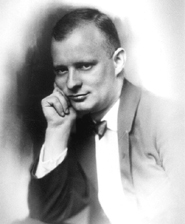 |
Paul Hindemith Composer, violist, violinist, music theorist and conductor Paul Hindemith (16 November 1895, Hanau - 28 December 1963, Frankfurt am Main). More details can be found on http://www.Hindemith.org . |
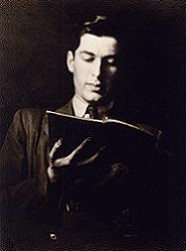 |
Gideon Klein Czech pianist and composer of Jewish origin Gideon Klein, was born on
6th December 1919 in Přerov in Moravia. At age six he began to study
piano with the head of the local conservatory. When he was eleven he travelled every month to Prague to have
piano lessons with Růžena Kurzová (1875 - 1938), the following year he
moved to Prague to live with his older sister Eliška Kleinová (1912 -
1999). In the fall 1938 Klein entered the Master School of the Prague
Conservatory studying piano with Prof. Vilém Kurz (1872 - 1945) and the
Charles University in Prague to study philosophy and musicology. For a
short time he was taking lessons in composition with Alois Hába (1893 -
1973) at the Prague Conservatory. In 1940 he had been granted a scholarship at the Royal Academy
of Music in London, but anti-Jewish legislation denied permission to
travel to London. He graduated from the Master School in one year, but
he wasn't allowed to continue with his studies when the Nazis closed
all institutions of higher learning and banned all Jewish activities.
Until his deportation he managed to perform as a concert pianist under
the pseudonym Karel Vránek. In December 1941, along with thousands of other Prague Jews,
Gideon Klein was deported by Nazis to Terezín concentration camp.
During his first few months in Terezín, despite of inhuman conditions
there, he continued composing, organizing artistic events and
encouraging his fellow
prisoners Pavel Haas (1889 - 1944) - former pupil of Leoš Janáček, Hans
Krása (1899 - 1944), Sigmund Schul (1916 -1944), James Simon (1880 -
1944) and Viktor Ullmann (1898 - 1944) - Arnold Schoenberg's pupil, to
continue composing. On 16th October 1944, together with many of his colleagues, he
was transported to Auschwitz (Osvětim) and from there to Fürstengrube,
a coal-mining labour camp for men, near Katowitz in Poland. It is
presumed that he was murdered there at the end of January 1945. Most of the works were saved by his sister Eliška Kleinová, who
survived Auschwitz. Rediscovered Klein's compositions in June 1990, in
Prague, includes the Duo for violin and cello written in 1939 - 1940
and over fifty years published by composer Vojtěch Saudek (1951 -
2003), grandnephew of Franz Kafka.
|
 |
Irena Kosíková
Czech organist and composer Irena Kosíková was born in Prague into the intellectual family of the prohibited philosopher Karel Kosík and literarary scientist Růžena Grebeníčková, the Herder prize laureate. She began her organ studies with Prof. Jan Hora, together with piano lessons given by Prof. Eliška Kleinová and Prof. Arnoštka Grünfeldová. Irena Kosíková studied organ performance (Prof. Jaroslava Potměšilová) and conducting (with Prof. Karel Fiala) at Ježek's Conservatory. She was refused to further her studies for political reasons. She took private composition lessons with Prof. Miroslav Raichl. Finally after the Velvet Revolution she was accepted at the Janáček Academy of Music (JAMU) in Brno into the organ class of Prof. Alena Veselá and Prof. Kamila Klugarová. She graduated at the Academy of Music (HAMU) in Prague, under the guidance of Prof. Josef Popelka. Irena Kosíková now gives organ concerts and is also intensively composing. Her works have been performed in the Czech Republic, Bosnia and Herzegovina, Belgium, Bulgaria, Germany, Israel, Poland, Russia, Turkey, Sweden and the United Kingdom. As an organist she specialises in the interpretation of organ works written by Johann Sebastian Bach: including performances of the complete Organ Toccatas, Voluntaries, Leipzig Chorals, The Art of Fugue, Organ Mass. More information is available on http://www.iKosik.com . |
| Anna
Brikciusová (Duo Brikcius) Czech cellist Anna Brikciusová was born in Prague, into a family with a distinguished cultural background. From early childhood she began to play the cello. After her studies at the Prague Conservatory, in cello classes of Prof. Jaroslav Kulhan and Prof. Viktor Moučka, Anna graduated under the tutelage of Prof. Vladan Kočí. Cello consultations with Prof. Stanislav Apolín. She has actively participated in many international cello master classes. French Academy (Prof. J. Bárta), Jihlava International Master classes (Prof. D. Sella, Prof. E. Rattay), International Cello Interpretation Master classes (Prof. S. Apolín). She has performed in the Czech Republic, Bosnia and Herzegovina, Germany, Sweden, and the United Kingdom. Anna Brikciusová plays a "Benjamin Patočka" cello made in 1913. Together with her brother František Brikcius, she is a founder member of the "Duo Brikcius". They will both appear as part of the "Duo Brikcius - 2 Cellos Tour" in the Czech Republic (Praha, Brno, Klatovy, Točník, Velké Březno, Teplice, Jičín, Boskovice, Lidice, Telč, Praha - Šeberov, Louny, Chotěboř, Praha - Chodov, Veselí nad Moravou, Praha - Vysočany, Praha - Slivenec Radnice, Louny, Turnov, Frýdlant, Praha - Petrovice, Polešovice, Tábor, Beroun, Rájec - Jestřebí, Plzeň, Kladno, ...) and abroad (Algeria, Bosnia and Herzegovina, Germany, Poland, Sweden, Turkey, the United Kingdom). More information is available on websites http://www.Brikcius.com . |
 |
| František Brikcius (Duo Brikcius) Czech cellist
František Brikcius
was born in Prague, into a family with a distinguished cultural
background. From early childhood he began to play the cello. He was
accepted into the Janáček Academy of Music (JAMU) in Brno after
completing his study of the absolutory at the Prague Conservatoire,
under Professor Jaroslav Kulhan. As a student at JAMU František studied
in Bedřich Havlík’s cello class. He furthered his study at The
Toho
Gakuen Academy in Japan, and continues his studies with master classes
under the guidance of Professor Anna Shuttleworth in United Kingdom. He
graduated under the tutelage of Professor Evžen Rattay. He has actively
participated in many international cello master classes. French Academy
(Prof. J. Bárta), Terezín Composers International Master
classes (Prof.
D. Sella), Summer Academy in Semmering (Prof. C. Onsczay, Prof.
T. Kühne),
Eton Cello Master classes (Prof. J. Goritzki, Prof. Melissa Phelps,
Prof. Anna Shuttleworth), Jerusalem Academy Master classes in Jezreel
Valley (Prof. S. Magen), Terezín Composers Master classes in
Israel
(Prof. D. Sella). He has performed in Austria, Belgium, Bosnia and
Herzegovina, Bulgaria, the Czech Republic, France, Germany, Israel,
Italy,
Japan,
Poland, Slovakia, Russia, Turkey, Sweden and the United Kingdom.
František
Brikcius
plays a
"George
Kriwalski" cello made in 1904. Together with his sister Anna
Brikcius, he is a founder member of the "Duo Brikcius". More
information about
František Brikcius and his projects ("Prague - Brno: 6
Contemporary
composers for cello solo in the interpretation of František Brikcius",
"Tartini's L'Arte
dell'Arco in the
interpretation of František Brikcius". "7 Candles", "Weinberger Tour",
"Duo Brikcius - 2
Cellos Tour",
"MAKANNA" &
"eSACHERe") is
available
on websites http://www.Brikcius.com , http://www.FaceBook.com/Brikcius
& http://www.Twitter.com/Brikcius .
|
 |
- WebMagazin.cz: Pod taktovkou Bedřicha Smetany
- The Epoch Times: Cello Duo Revives Compositions of Holocaust Victims
- The Epoch Times/NYC: Cello Duo Revives Compositions of Holocaust Victims
- The Tourism Today: 'Çalabildiđim her dakika benim hazinem gibi...' František Brikcius (Interview)


